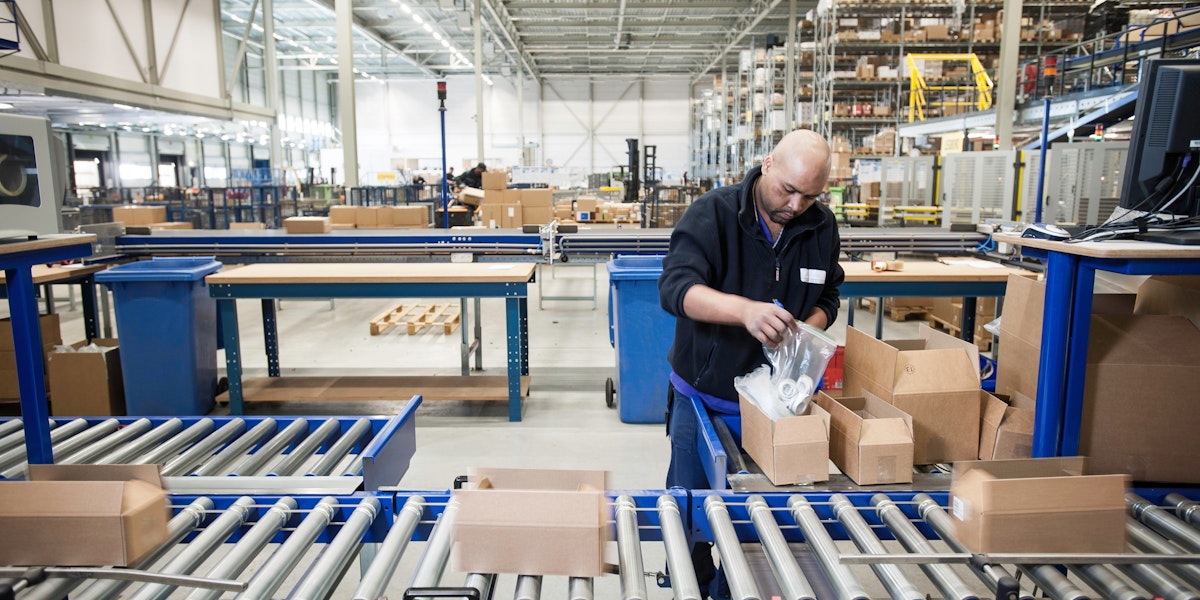When International Paper announced the closure of their Savannah and Riceboro facilities this August, something interesting happened from a targeting perspective. 1,107 skilled workers with decades of manufacturing experience suddenly entered the job market.
If you’re a company with serious hiring needs, this represents a rare opportunity.
The Traditional Hiring Approach vs. Modern Targeting

Traditional approach:
- Post on job boards and hope the right people see it
- Oversaturated Job Listing sites
- Set up a booth at job fairs and compete with everyone else
- Cross your fingers that good candidates find you
Modern targeting approach:
- Geofence the International Paper facilities with frequency filters to identify regular employees (not just visitors)
- Target those specific devices across all their daily locations – home, grocery stores, gas stations
- Serve strategic messaging about your company culture and opportunities
- Track everything from first impression to completed application
The difference? One approach hopes good people see your message. The other guarantees your message reaches specific, qualified individuals.
How Geofencing with Frequency Filters Works
Here’s the technical approach that makes this possible:
We draw a digital fence around the International Paper facilities and collect device IDs of phones that showed up there regularly over the past month – not just people who drove by once, but actual employees who were there consistently. This gives us a clean list of the workers who were actually displaced.
Then we can target those specific devices wherever they go – their homes, other businesses they visit, even when they’re at competitors’ facilities researching other opportunities. Beyond this, our tools allow us to find their other devices such as Smart TV’s, their computer, or tablets.
The result? Exactly what you’d think in a rare target rich environment like this. Unlike a job fair or a job posting, you aren’t standing in a lineup with your competitors. You’re getting a three phase collection of messaging to them on average four times a day.
Creative Strategy: The Three-Phase Rollout
Smart companies don’t just throw ads at people – they roll out creative in phases that match the job search journey:
Phase 1: Education and Empathy (Weeks 1-2) “We know the International Paper closure affects entire families, not just workers. Here’s what we’re seeing in Savannah’s manufacturing job market….” Focus on being helpful and encouraging in a troubling time; not promotional.
Phase 2: Company Culture Introduction (Weeks 3-4) “At [Company Name], we value the precision and work ethic that International Paper workers are known for. Here’s what makes our opportunity for you different.” Now you’re connecting their background to your brand.
Phase 3: Direct Engagement (Weeks 5-6) “Ready to continue your manufacturing career with a company that understands your International Paper experience? Here’s how to connect with our team.” Clear call-to-action with specific next steps.
Each phase builds on the previous one, creating familiarity and trust before asking for any commitment. Every step of the way, we’re receiving data on site visits, ad clicks, and commercial completion rates. This allows us to make daily tweaks if we’d like to optimize the campaign for better results.
The Numbers: What It Actually Costs
Let me break down the real math for reaching 1,107 displaced workers with strategic messaging. As this media is purchased through online bidding exchanges, the cost of this strategy has a range of $2,285-$3,240 per month:
Monthly Investment Breakdown:
- Display Advertising: $797 – $1,328 (132,840 monthly impressions at $6-10 CPM)
- Connected TV(streaming tv): $1,488 – $1,913 (42,480 monthly impressions at $35-45 CPM, reaching ~354 targetable households)
- Total Monthly Cost: $2,285 – $3,241
What This Gets You:
- Guaranteed reach to every displaced International Paper worker
- 4 impressions per person per day across multiple touchpoints
- Sequential messaging that builds familiarity over time
- Complete tracking from first ad view to job application (or in person hiring event)
For context, that’s less than many companies spend on a single month of radio sponsorship that reaches everyone and converts nobody specific.

Why Former International Paper Workers Are Different
These aren’t typical job seekers posting resumes on Indeed. International Paper workers come from a company with an 88-year legacy in Savannah. They understand manufacturing excellence, safety protocols, and long-term employment relationships.
When you target them based on their actual workplace (not just job search behavior), you’re reaching people who already have the skills, work ethic, and stability you’re looking for. They’re not job-hoppers – they’re career professionals looking for their next long-term opportunity. Chances are you will miss out on the opportunity to hire them. Many good workers likely have multiple opportunities, so timing matters, and not all are going to look on job posting sites.
Real-Time Measurability: Knowing What Works
Here’s where modern targeting gets interesting – we can measure everything in real time, not just hope people remember your ads when they eventually apply.
What We Track:
- View-through conversions: People who saw your ad but didn’t click, then later applied or called
- Click-through conversions: Direct response to your creative
- Cross-device tracking: Following the same person from TV ad to mobile research to desktop application
- Creative performance: Which messages and images drive the most engagement
- Optimization data: Real-time adjustments to improve results while campaign is running
Instead of waiting weeks to see if your hiring campaign worked, you get daily reports showing which creative is performing best, which workers are most engaged, and exactly how many of your applications came from the targeted International Paper employees versus random job seekers.
This means we can optimize creative, adjust messaging, and improve results continuously rather than running the same ads for months hoping they work.
The Local Economic Context
Savannah’s manufacturing sector is strong – recent years have brought billions in new investment and thousands of job opportunities. But here’s what makes this targeting opportunity unique: you can reach qualified candidates before they start researching every manufacturer in the area.
Instead of competing at job fairs where workers are comparing dozens of companies, you can start conversations while they’re still processing their situation and figuring out their next steps.
The Bottom Line
These 1,107 workers need new opportunities. Companies with hiring needs have those opportunities. Modern targeting just makes sure the right people find each other more efficiently.
The workers are out there right now, checking sports scores, catching up on news sites, and getting recipes. They’re watching their favorite TV shows on streaming cable. The ad spaces for those people are up for grabs. For a few thousand dollars per month, you can have systematic conversations with every displaced International Paper worker about why your company might be their next career move.
We’ve given you the recipe, need somebody to execute? We’d be happy to walk through this strategy and others. Visit riseandflow.tech





Comments are closed